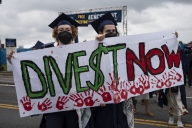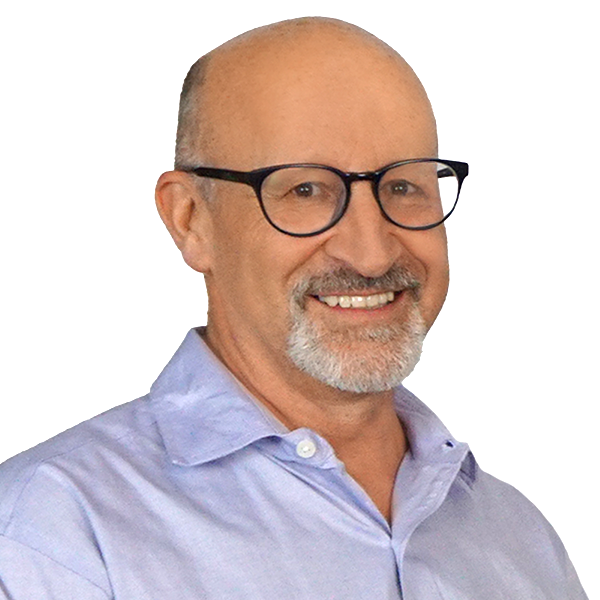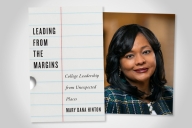You have /5 articles left.
Sign up for a free account or log in.
Robert Zemsky has spent most of his career as what he calls "a prickly and at times just barely tolerated academic gadfly" -- a higher education researcher who, though working inside the academy, was known for aggressive and (especially early on, he admits) sometimes nasty critiques of the industry he called home.
Yet as a participant on Margaret Spellings' Commission on the Future of Higher Education, Zemsky was part of the triumvirate that his fellow commissioner Richard Vedder called "Dudervestsky" -- a trio of panel members, with the former college presidents James Duderstadt and Charles M. Vest, who could generally be counted on to defend higher education against what were seen, depending on one's views, as either unfair attacks or pointed and long overdue criticism. Charles Miller, the commission's outspoken chairman, sometimes had Zemsky in mind when he railed that the "tone police" were trying to blunt the force of tough language about the academy's perceived weaknesses.
With the Spellings Commission nearly two years in the rearview mirror now, Zemsky has once again taken on the role of critic -- this time of the commission and of higher education. In Making Reform Work: The Case for Transforming American Higher Education (Rutgers University Press), the University of Pennsylvania professor delivers what he describes as "the report the Spellings Commission should have written." (For an excerpt from the book, see today's Views piece.)
With that audacious statement, he acknowledges that the commission was right to deem higher education in need of significant change but argues that, by emphasizing what's broken rather than how to fix it, and offering a "watered-down" menu of recommendations instead of a handful of bolder ideas, the commission missed the mark -- and a major opportunity to motivate higher education to change. (Not surprisingly, perhaps, the commission's chairman, Charles Miller, disagrees and in turn dismisses many of Zemsky's own answers. Read on for that.)
"What I've concluded is that in this climate, people are really ready to talk about big ideas, not just big critiques," Zemsky says. "There's an appetite for serious discussion of change" not only among the general public, but within a higher education establishment that has often resisted significant transformation. Zemsky isn't sure the "big ideas" he puts forward as potential "dislodging events" are the right ones -- though he's especially fond right now of the three-year degree, which he sees gaining traction -- but he is confident that the time has come for state and federal political leaders, higher education administrators and faculty members, and others to undertake a systematic reassessment that "comes to consider the impossible" in a way that produces major, transformative change.
A 'Considered View'
It's hard not to read Zemsky's book as a summing up of a 40-plus-year career as one of the foremost observers and prognosticators of higher education, though he discourages that characterization (in part because he doesn't want to leave the mistaken impression that he's anywhere close to retiring). "My earlier writings probably sounded like a 'summing up,' too," Zemsky says, referring to tomes with such sweeping tableaux and highfalutin' titles as Higher Education as a Competitive Enterprise (Jossey Bass, 2001) and Remaking the American University (Rutgers University Press, 2005).
What might distinguish this from what he's written before, Zemsky concedes, is not only his immersion in the deliberations of the Spellings Commission, but the fact that he's "been around a while longer and had lots of additional interesting experiences," including significant (and increasing) involvement in studying of higher education systems outside the U.S. So while it risks suggesting that his previous writings were off the cuff, "you could say this is my considered view," Zemsky says. "If that's equivalent to a 'summing up,' okay."
Foremost among the "interesting experiences" shaping Zemsky's considered view, undoubtedly, was his time on the Spellings Commission. Zemsky says he wanted to avoid having the book be a "tell-all" about the behind the scenes, and he largely succeeds. But one only had to pay attention to what unfolded in the panel's public meetings to know that Zemsky offered probably the strongest counterpoint to Miller, the chairman, in terms of both intellectual jousting and disagreements about the group's strategic direction.
Zemsky, for instance, forcefully discouraged the commission (and Miller, for whom the issue was a favored hobby horse) from focusing too much attention on accreditation as a mechanism for reforming higher education, calling it a "thin reed" on which to hang major change. And he repeatedly counseled Miller to take a less combative approach in his and the panel's rhetoric, saying that mean-spiritedness would be likely to diminish the commission's odds of getting college leaders to come on board.
"If you want to change higher education, you challenge it. If you want headlines, you insult it," Zemsky said during the course of the commission's deliberations in 2006. "We should be talking about 'raising the bar,' which is a different way of saying 'not good enough,' but in a much nicer way." Miller, in turn, complained regularly during the course of the panel's work about what he called the "tone police," saying that college leaders were using complaints about language to object, ultimately, to being asked to fundamentally change their ways.
While the Spellings Commission most heavily motivated Zemsky to write his book, he frames his response more generally to what he calls a wide array of "lamenters" whose critiques of higher education amount, he writes, to "long litanies of failure along with generalized prescriptions for making right what has gone so horribly wrong." On the list he puts the makers of the 2005 PBS documentary "Declining by Degrees, Higher Education at Risk" and the annual "Measuring Up" reports produced by Patrick Callan's National Center for Public Policy and Higher Education, among others. Zemsky also dissects higher education critiques from inside the academy, including those by the former Harvard president Derek Bok and David L. Kirp of the University of California at Berkeley, and finds them wanting for a variety of reasons.
A Friend, Yes, But a Critic, Too
Just because Zemsky finds fault with so many internal and external broadsides about higher education does not mean he thinks all is well in the academy -- far from it. Too many socioeconomically disadvantaged students start but do not complete higher education. Most colleges still have virtually no idea whether or how much students are learning from them.
And the system for financing higher education, Zemsky writes, is "a house of cards -- too dependent on tax breaks that are likely to be called into question, too dependent on credit markets that can suddenly contract, too unsure of the rationale by which it sets prices and offers discounts, and at the same time unable to imagine alternate production functions that could in fact yield substantial price rollbacks."
It won't be lost on anybody who followed the Spellings Commission closely that Zemsky's diagnosis of higher education's problems sounds quite a bit like the commission's own -- and that fact certainly is not lost on Charles Miller, the commission's chairman. "Eventually he admits to many of the same problems in higher education others have identified, although he dresses them up with slightly different language," Miller said in an e-mail message after Inside Higher Ed asked for his thoughts on Zemsky's book. "He identifies 'learning,' 'attainment' and 'money' as real problems after repeatedly criticizing the Spellings Commission for its similar conclusions."
Perhaps -- but the big problem with the Spellings Commission's work was not the substance of the diagnosis but the equivalent of its bedside manner and its prescription, Zemsky argues. The panel's deliberations and report focused far too much on proving the extent and severity of the problems ("playing the blame game," as Zemsky calls it) than on offering sharply drawn and powerful solutions, he says. "Don't tell me it doesn't work, or explain why it didn't work -- tell me how to fix it. That's where my head is now," Zemsky says.
Zemsky's answer to the "how to fix it" question begins with the notion that change must come not one institution at a time, but systematically, through a process not unlike what the European Union has done with its Bologna Process. Such a cohesive approach, which would involve government officials, business leaders and, importantly, college administrators and professors, is likeliest to come about only if higher education is forced, through one or more "dislodging events," to "consider changes that no one institution on its own will likely pursue," he writes.
Beating colleges up about how expensive they are or telling professors that their students aren't learning hasn't helped persuade higher education leaders that their institutions must change, Zemsky says in an interview; what's needed is something that says to faculty members and others: "The doctors have changed, even the accountants have changed. It's your turn to change now."
What could compel that sort of attitude adjustment? Zemsky offers three possibilities, none of which, he acknowledges, "may prove either feasible or even desirable," but each of which could jolt the higher education system enough that it "breaks the gridlock that now holds attempts to reform higher education hostage?
One would be having Congress "metaphorically 'nuke' the current system of federal financial aid," and reengineer it in ways that fundamentally change the way institutions are rewarded to encourage them to change their behavior, with increased focus on student participation and success. A second: changing federal tax rules so that money that wealthy institutions earn from their investments are taxed as if they were hedge fund revenues -- unless the money was spent on education or research.
The third -- and the one Zemsky seems genuinely enthused about -- is if the idea of the three-year undergraduate degree were to take hold in a major way, which he argues could have beneficial effects in making high school more meaningful and lowering the costs of educating college undergrads, among other things.
Miller, the Spellings Commission chair, offered a critique of Zemsky's "dislodging events," questioning how realistic the three-year degree is, for instance, at a time when "the median time to a bachelor's degree is closer to six years than four years, when students are reported to be unprepared for college, when most students spend inadequate time on task even during a four-year period," etc.
But most fundamentally, unsurprisingly, he warns that the sort of carefully planned out, deliberative process that Zemsky advocates is perhaps less likely than "a public policy process which includes more public and political engagement and which could appear to central planners to be much messier than they prefer. When all stakeholders are involved, not just the professoriate, some significant changes will take place for higher education. What is hoped is that the change will be productive, not destructive. That calls for the academy to recognize its precarious position and to stop questioning the motives or the intelligence of its critics."
In many ways, what Miller warns about differs very little from some of Zemsky's "dislodging events" -- events that happen to higher education, compelling its leaders to change.
But he remains skeptical about Zemsky's vision in which the men and women of higher education, perhaps motivated by one or more of those dislodging events, take charge of their own destiny to instigate or at least willingly participate in a process that it designed to produce fundamental change.
Is Zemsky himself sanguine about the likelihood of such a scenario? Confident, probably not. But hopeful? If it's framed the right way, he suggests.
"People are ready for serious discussion," Zemsky says, "about 'how can we be better?' "








.jpg?itok=ShaCesee)
